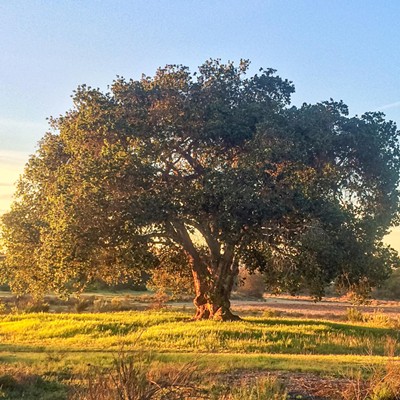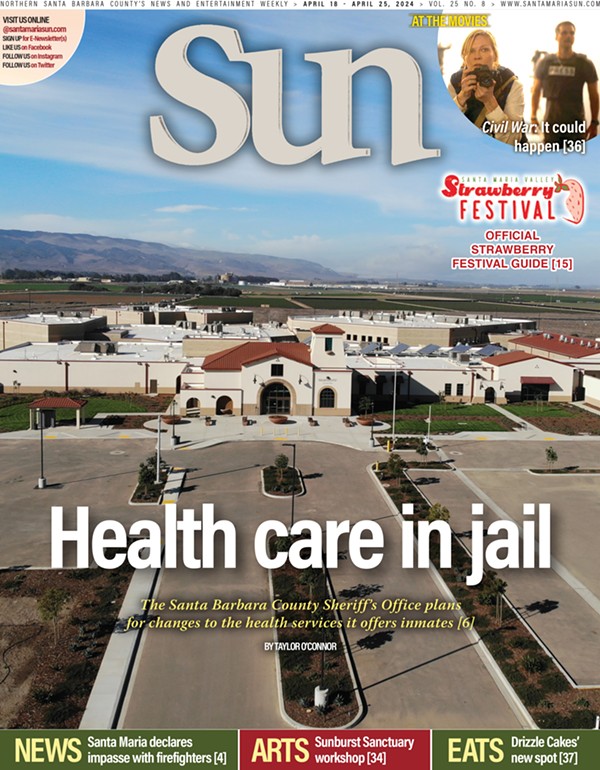After a six-month hiatus, Santa Barbara County’s ad hoc subcommittee has resumed public negotiation meetings with representatives from the Santa Ynez Band of Chumash Indians. The meetings—which were temporarily suspended after their seventh session in March—aim to draw up mitigation agreements regarding Camp 4, a 1,400-acre parcel the Chumash plan to take into federal trust as part of the tribe’s reservation to provide member housing.
The initial series of monthly discussions stalled when it came to the subject of sovereign immunity—the county wanted the ability to sue the Chumash should the tribe violate the mitigation agreement terms, which would require the tribe to waive its immunity.

Legal representatives from both parties met during the break from public discussions to craft the language for the waiver of sovereign immunity. According to subcommittee member and 3rd District Supervisor Doreen Farr, the counsel meetings were successful. Now, with the issue of sovereign immunity put to bed, the county and tribe can focus on other terms of their agreement.
“I’m happy the dialogue has opened up again,” Chumash Tribal Chairman Kenneth Kahn told the Sun. “We’re working hard on Camp 4 to provide housing for our people, and this mitigation piece is a big element of how we’re going to be able to address some of those challenges. So coming back to the table is extremely important for us, and we’re glad the county has agreed to start up talks again.”
The first of the new series of negotiations took place on Sept. 8, when the county and tribal representatives combed through a nine-page term sheet of agreement proposals and responses from both parties. Topics included gaming terms, property tax mitigation, groundwater, and building and fire codes.
Though the discussion heated up at times, Farr said she felt both parties came away with a better understanding of the other’s perspective—especially regarding gaming terms.
Previously, the Chumash had agreed on the federal level not to game on Camp 4 should it come into trust, but the tribe refused to make that agreement at the county level. Farr and fellow subcommittee member and 4th District Supervisor Peter Adam said that including a no-gaming clause in its county mitigation agreement shouldn’t make a difference to the tribe, but the tribe said that would infringe on its sovereign immunity. The argument cropped up again at the Sept. 8 meeting.
“I came to understand in the meeting that, as Chairman Kahn described it, it’s the tribe’s strong feeling that their sovereign right to game, given to them by the governor, is something they would consider surrendering to the federal government, but not to local government,” Farr said. “Even though I couldn’t understand what the big deal was, I understand from their perspective how they feel about county government versus their relationship with the federal government.”
At the meeting, Farr expressed concern that the tribe’s gaming compact with the state would allow the Chumash to open a second casino. But tribal legal officer Sam Cohen said the second casino would have to exist on property that was part of the reservation at the time the gaming compact was made. This excludes Camp 4.
“There are other structures in place that would really discourage [gaming] from happening, at least in the near term,” Farr said.
Tension arose again at the meeting during discussion of the tribal hall slated for Camp 4. The county wanted to know what kind of events the Chumash would hold at this hall and whether they would generate some kind of revenue that should be included in the tax mitigation discussions. Kahn, however, thought this was going too far.
“Some of the questions that were brought up, like the hours of operation for our tribal hall or what kind of events we’re going to have there, I think that misses the point,” Kahn said. “It completely ignores the fact that the tribe is a government, and we have a democratic process to develop policies within land use and any kind of guidelines for facilities.”
Farr said that as the meetings progress, she expects the tax mitigation issues to require the most attention.
“I think that as we go through and come to agreement on certain issues and they drop off, we’ll come back to the harder issues,” she said. “I think the actual money mitigation, the payment and tax issue—which is really important to the county so we have the funds to mitigate the impact from the property—that’s something we will still need more information to work on.”
And the county doesn’t have all the time in the world to resolve those issues: HR-1157, a bill that would allow the Chumash to take Camp 4 into trust, is making its way through Congress, and the tribe is also pursuing the fee-to-trust avenue of adding Camp 4 to its reservation.
“The county thinks, and hopefully the tribe also thinks, no matter what happens with the congressional process, it’s important to have an agreement of some kind,” Farr said. “Ideally, we’d like to have an agreement that both sides have ratified, that would be embedded in any legislation that might go forward.”
Kahn agreed that such an arrangement would be ideal, but said the tribe won’t let the pursuit of a county agreement slow its plans for Camp 4. If they could hammer out all the details at the next county-tribe meeting in October, he said, the tribe would prefer to do so.
“We’re not waiting for this agreement to finish, because this agreement has held us up long enough,” Kahn said. “To wait for this agreement to close, it could be years. But I hope that’s not the case. We feel like we have made a lot of progress, and we hope we can have it resolved soon.”
Staff Writer Brenna Swanston can be reached at [email protected].








